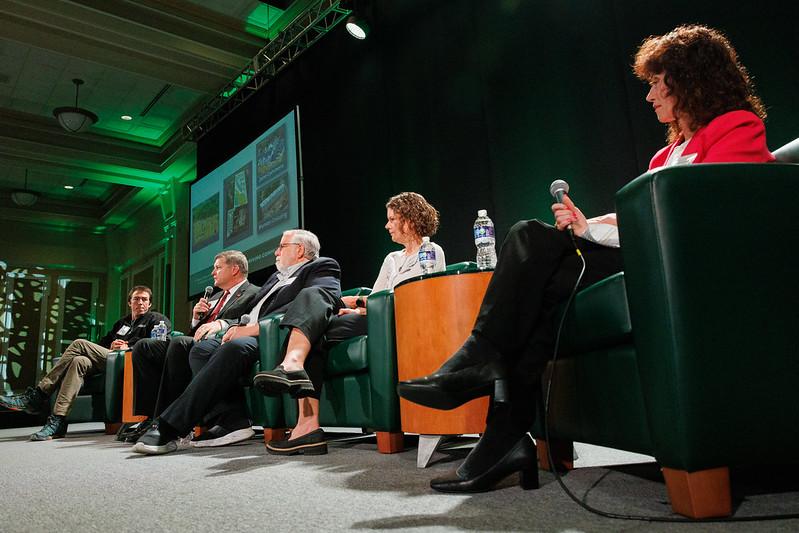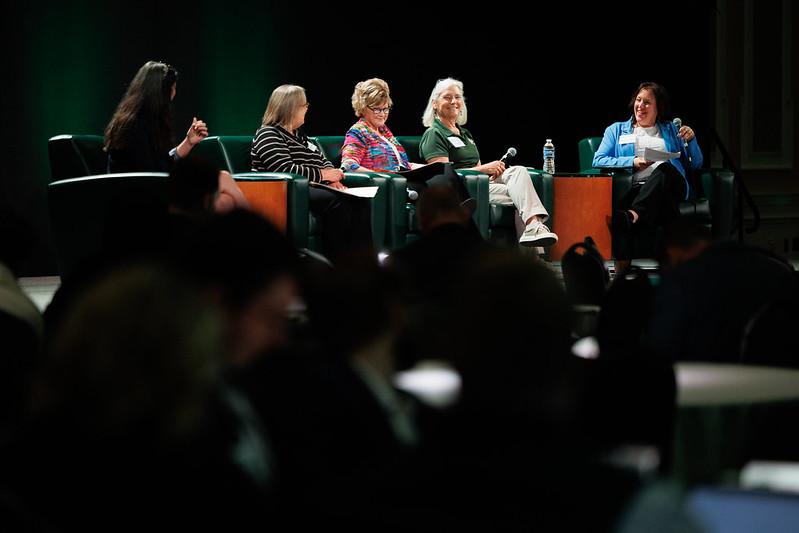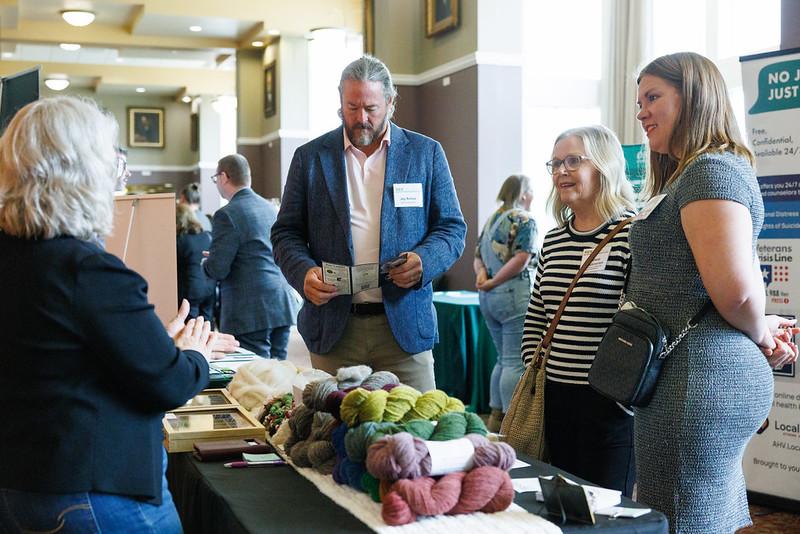
Conference brings together regional leaders to discuss economic growth, thriving communities

More than 300 people invested in the continued growth and success of Appalachian Ohio attended the 13th annual State of the Region Conference on May 13 at Ohio University.
As part of the U.S. Department of Commerce Economic Development Administration (EDA) University Center, the Voinovich School of Leadership and Public Service brought together public officials, economic development experts, business and organizational leaders, and others to discuss various issues related to economic growth in the Appalachian Ohio region.
“The State of the Region was a powerful reminder of the innovation and collaboration shaping the future of Appalachian Ohio,” said John Carey, director of the Governor’s Office of Appalachia. “As our region develops, we continue to leverage unique opportunities and create meaningful change, all driven by strong partnerships and leaders who are committed to seeing their communities succeed.”
The theme for this year’s event was “Building Thriving Communities” and featured four panels on Housing, Tourism, Child Care, and Development.
All of these efforts can be tied together by one foundational component: affordable housing. As different panelists pointed out, it’s essential for the tourism industry because workers need a place to live that is close to hotels, restaurants, and attractions. The level of childcare is dependent on the local schools and the property taxes generated, and new residents fuel economic development.
It's important to note that housing options aren’t required to be new dwellings, but ones that are improved.
“We try to take a ‘fix it first’ approach, we have thousands of people living in what I would consider low-quality housing,” said Ian Beniston, executive director of the Youngstown Neighborhood Development Corporation. “If we don't fix those houses, ultimately, a lot of folks will have to vacate them.”
Kerry Pigman, executive director of the Athens Foundation, highlighted the success of the Co-Create program, which has brought together 40 community groups to work on housing solutions.
“There was a housing grant that became available, and because of the collaboration, we were able to put together a full proposal in five days,” said Pigman. HAPCAP (Hocking Athens Perry Community Action) was awarded $2 million from the Ohio Department of Development to purchase the Sunset Motel and will turn it into a low-barrier shelter, scheduled to open in summer 2026.
In addition to the program, networking and asking questions of one another is a crucial component of the day’s events, something that pays dividends in the long run. Several attendees noted that the connections they made at previous SOTR events were crucial in solving problems for their respective organizations.
“Collaboration is what powers Appalachia,” said Melody Young, executive director of the Ross-Chillicothe Visitors Bureau. “We need to think of the region as a whole, not just individual towns or counties.”





